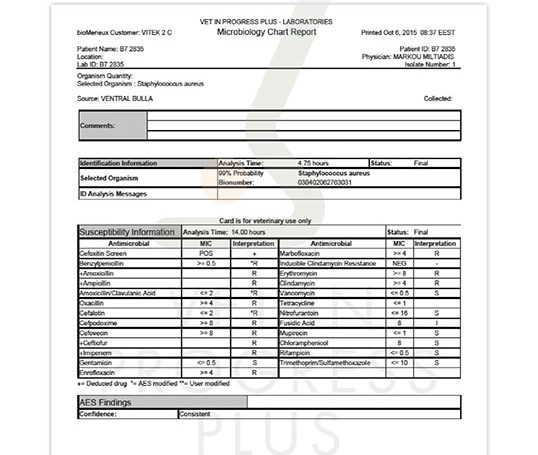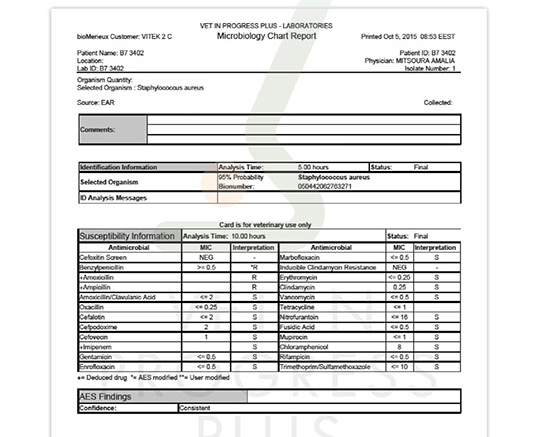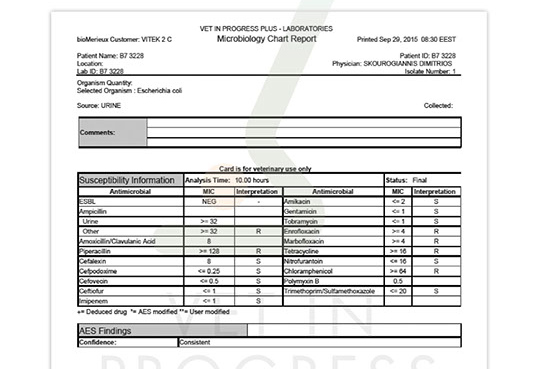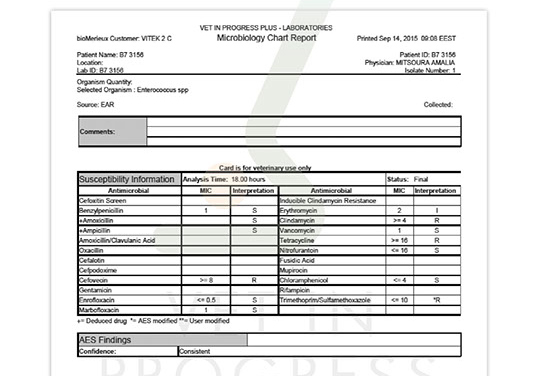THE “AT FIRST” OF THE CLINICAL FOR THE ASSESSMENT OF THE SUSCEPTIBILITY TESTING
• Susceptibility Test is a detailed recording data of the sensitivity of a microorganis to the required antimicrobial agents
• Evaluation of the culture
• It is examined if:
- The clinical picture concludes to infection
- The isolate is the responsible pathogen
INFORMATION DURING READING OF THE SUSCEPTIBILITY TEST
• Precise identification of the microorganism on the level of species
• Recording of all required antibiotics
• Below are searched:
- Indications R, S, Ι
- MIC
- The reports for existence of enzymes that inactivate an entire group of antibiotics eg production of ESBLS
- Antibiotics-markers
• With the correct “reading of the phenotype the existence of resistance mechanisms can be detected
• Contact with the laboratory
CLASSIFICATION OF ANTIBIOTICS BASED ON THE WAY OF ACTION
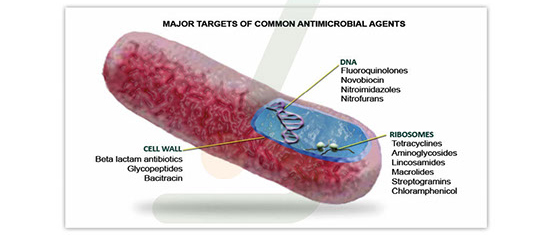
ANTIMICROBIAL RESISTANCE
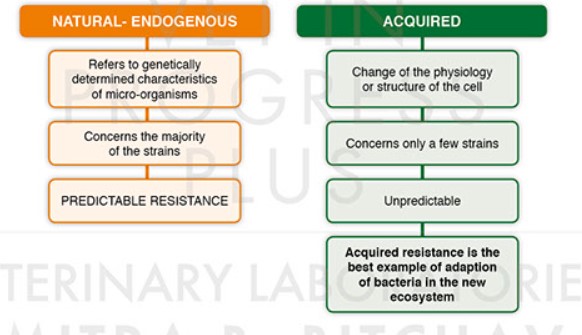
EXAMPLES OF ENDOGENOUS RESISTANCE OF PATHOGENS
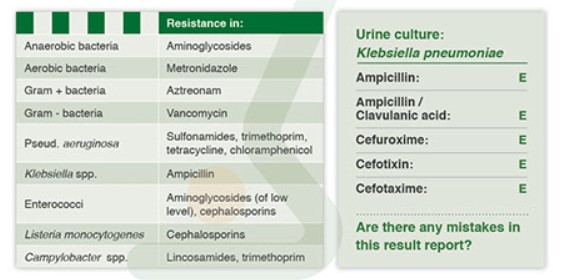
IN VITRO SUSCEPTIBILITY TESTING
Methods used:
• Classic
- Disk diffusion
- Dilutions in broth or agar
• Latest
- E-test
- Automated methods
- Molecular
WHY USE AN AUTOMATED METHOD
• Micro dilution method with cards that have 64 micro wells (1 micro well for the control of the growth of the bacterium and wells of specific quantity of approximately 20 antibiotics))
• MIC in 4-18h
• Advanced Expert System for the interpretation and correction of the results
RELATION BETWEEN MIC AND CLINICAL RESISTANCE
• Minimum inhibitory Concentration
Minimum inhibitory Concentration (MIC) refers to isolates and the specific antimicrobial
• Clinical BP (- clinical break points)
![]()
COMMITTES THAT ISSUE INSTRUCTIONS
• CLSI (Clinical and Laboratory Standards Institute)
• EUCAST (European Committee on Antimicrobial Susceptibility Testing)
• OIE, CDS – AST
• National Committees
CLINICAL CATEGORIES/CLSI DEFINITIONS
• Susceptible, S
High possibility of response to the treatment
• Resistant, R
he therapy is likely to fail
• Intermediate, I
The antibiotics might be effective when:
- They are administered in higher doses
- They concentrate in higher density in a body fluid
HOW CAN I SELECT THE MOST APPROPRIATE TREATMENT BASED ON THE MIC OF THE RESULTS REPORT
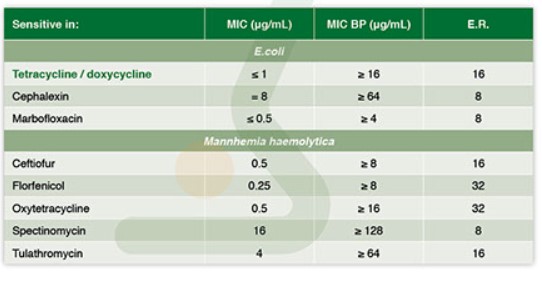
DIRECTIONS
• Ιncrease of the frequency of microbiological analyses in patients with infections
• Frequent improving of the technical control of microbial sensitivity to antibiotics (CSLI, EUCAST)
• Selection of the most appropriate methods and proper executions by applying a continuous quality control
• Conducting regular statistical studies on the resistance of microorganisms
CLASSIFICATION OF ANTIBIOTICS
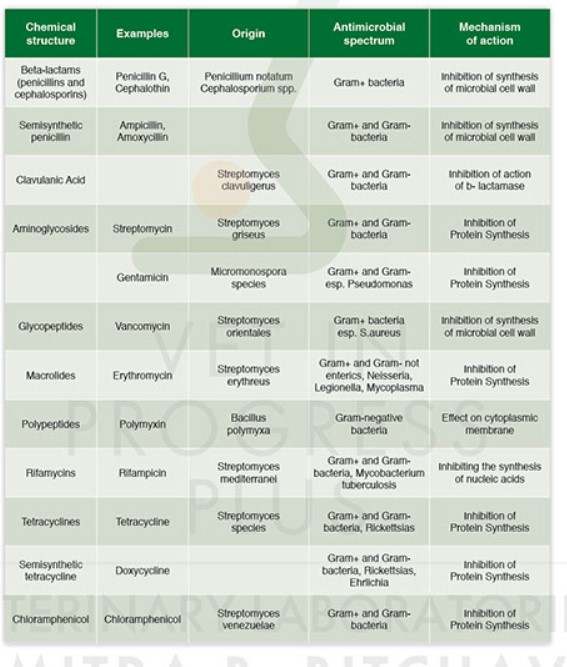
BIOCHEMICAL MECHANISMS OF ANTIMICROBIAL RESISTANCE
• Change the biological action target (changing pattern of antibiotic action points)
• Inactivation of antibiotics by producing hydrolytic or modifying enzymes
• Decreased cell permeability (reduced permeability of the bacterial wall)
• Resistance by active excretion of the antibiotic (through active efflux pumps)
PHENOTYPE OF RESISTANCE
• The development of bacterial resistance is due to:
- Production of enzymes
- Change of target of action of the antibiotic
- Reduced antibiotic intake
- Active excretion from microbial cell
• The appearance and spread of resistance is affected by:
- the selection pressure due to antibiotic use
- preexisting resistant offspring
- existence of infection control measures
TIPS
• It is proven that the antibiotic selects resistance
• The spread of (resistant) microorganisms generally obeys the spreading rules of infectious diseases
• Until now the the doctrine of treating infections is based on the perpetual cycle Trelease of an antibiotic-appearance of resistance-production of a newer generation of antibiotics-appearance of resistance in those too. This tonds to be replaced by a new doctrine that will be based on an extension of the ute of antibiotics
- Laboratories:
- Vet in Progress Plus
- Service:
- Bacteriology - Mycology
- Category:
- Importance Of Susceptibility Testing


